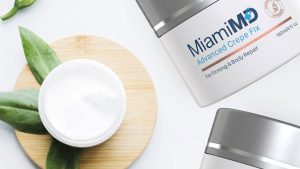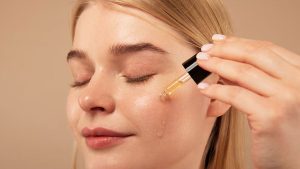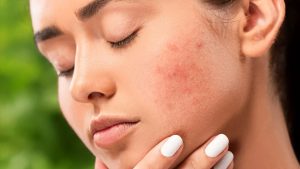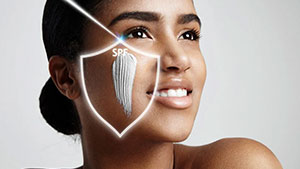What Causes Dark Spots on Skin?
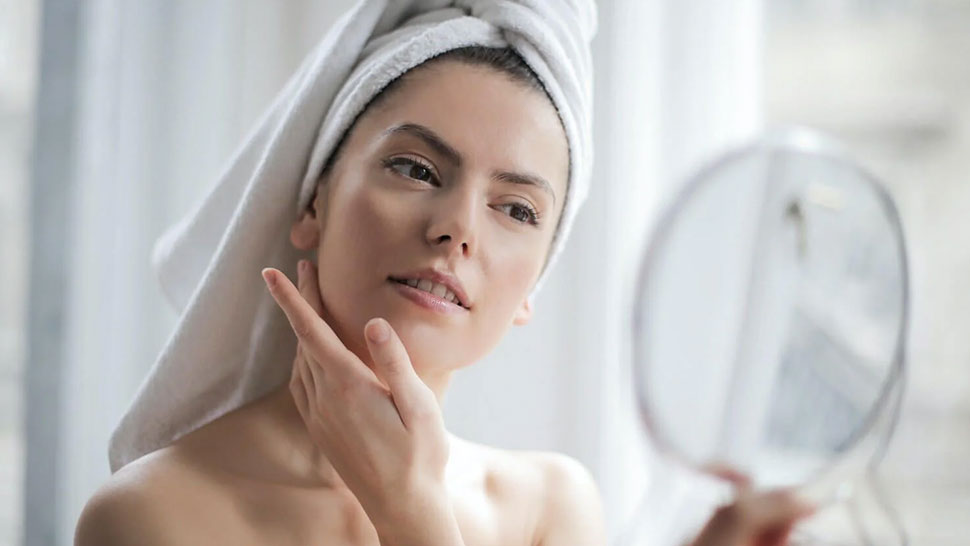
Have you ever noticed a dark spot or sun spot on your skin that seemed to appear out of nowhere?
Maybe it’s a small patch on your cheek, a cluster on your hands, or a stubborn mark left behind after a breakout. These dark spots, known as hyperpigmentation, are one of the most common skin concerns. And while they’re harmless, they can feel anything but welcome.
So, what’s causing these spots to show up? Is it just aging, too much sun, or something more? And most importantly, how can you prevent or treat them to restore your skin’s natural glow? Let’s focus on the science behind dark spots and uncover expert tips from Miami MD to help you achieve a clearer, more even complexion.
What Is Melanin and How Does It Work?
To understand dark or age spots, we need to start with melanin. Melanin is the pigment responsible for giving your skin, hair, and eyes their color. It’s produced by cells called melanocytes, which are located in the outer layer of your skin.
“When your skin is exposed to certain triggers, like sunlight or inflammation, melanocytes can go into overdrive and produce excess melanin,” explains Dr. Monica Fields, a board-certified dermatologist. “This can lead to dark spots or patches, often referred to as hyperpigmentation” (1).
Melanin serves a protective purpose. It helps shield your skin from the harmful effects of UV radiation. However, when melanin production becomes uneven, it can lead to discoloration and the appearance of dark spots.
What Are the Most Common Causes of Dark Spots?
Dark spots don’t appear out of thin air. There’s always a reason behind them. Hyperpigmentation, the process that causes these spots, is often triggered by a combination of external factors and internal changes within your body. Essentially, when your skin’s melanin production goes into overdrive, it leads to uneven patches of excess pigment.
“Dark spots are your skin’s way of responding to damage or stress,” says Dr. Monica Fields, a board-certified dermatologist. “Whether it’s caused by the sun, hormones, or inflammation, these spots are a result of your skin’s natural defense mechanisms” (2).
Understanding the real cause of your dark spots is the first step toward managing or preventing them.
Here are some of the most common factors responsible for triggering hyperpigmentation and why they happen.
Aging
As we age, our skin undergoes natural changes that can make it more susceptible to dark spots and general skin discoloration. These so-called “age spots” or “liver spots” are usually found on areas exposed to the sun, like the hands, face, and shoulders.
“Older skin has more difficulty repairing itself after sun damage,” says Dr. Fields. “This can lead to an accumulation of pigment over time, which manifests as dark spots.”
With age, skin is less efficient at producing new skin cells and shedding old — known as skin cell turnover. This, too, can contribute to dark spots that stick around.
Sun Exposure
One of the biggest culprits behind dark spots is UV exposure. UV rays penetrate the skin, are a source of free radicals, and stimulate melanin production as a defense mechanism. While this is what gives you a tan, overexposure can cause melanin to collect in certain areas, resulting in dark spots.
“Think of sun exposure as a cumulative effect,” says skincare expert Rachel Lin, founder of Glow Naturally. “Even if you don’t burn, every minute in the sun without protection contributes to future discoloration” (3).
Hormonal Changes
Hormonal fluctuations in women can lead to a condition called melasma, which causes dark patches on the skin. This is especially common during pregnancy, when using birth control pills, or during menopause.
“Hormonal changes can increase the sensitivity of your melanocytes,” explains Dr. Fields. “This is why melasma is sometimes called the ‘mask of pregnancy’” (4).
Post-Inflammatory Hyperpigmentation (PIH)
If you’ve ever noticed dark spots lingering after a pimple heals, that’s PIH. This type of hyperpigmentation occurs when the skin produces extra melanin in response to inflammation, injury, or irritation.
Acne, eczema, and even cuts or burns can leave behind dark marks. While these spots may fade over time, they can be stubborn without proper care.
Certain Medications
Some medications, like nonsteroidal anti-inflammatory drugs (NSAIDs), tetracyclines, and certain chemotherapy drugs, can trigger hyperpigmentation as a side effect.
These medications can make your skin more sensitive to UV rays or directly stimulate pigment production.
Exposure to Certain Chemicals
Certain chemicals, such as those found in perfumes or skincare products, can react with sunlight and cause dark spots. This condition, known as phytophotodermatitis, often leaves behind brownish patches on the skin.
What Are Some Less Common Causes of Dark Spots?
While sun exposure, aging, and hormonal changes are often the usual suspects behind dark spots or pigmentation on the face, there are also less obvious causes that can lead to hyperpigmentation. These causes might not affect everyone — but for some, they can play a significant role in the development of an uneven skin tone.
Factors like underlying medical conditions, genetic predispositions, and even rare disorders can contribute to skin pigmentation changes and skin dark patches.
Understanding these less frequent causes can help pinpoint why dark spots may appear and guide you toward the right prevention or treatment methods. Let’s take a look at some of these lesser-known contributors.
Medical Conditions
Certain medical conditions, like Addison’s disease, can cause dark spots to develop. This rare disorder affects the adrenal glands and leads to changes in skin pigmentation.
If you notice sudden or widespread dark spots on your skin, consult a healthcare professional.
Genetics
Your genetic makeup also plays a role in how prone you are to developing dark spots. Some people inherit a predisposition to conditions like melasma or freckles, which can darken over time with sun exposure.
How To Naturally Prevent Dark Spots
While some causes of dark spots are out of your control, there are several steps you can take to prevent them naturally. Prevention is always easier than treatment, so building a solid skincare routine is key. Simple habits like protecting your skin from the sun, nourishing it with the right ingredients, and avoiding harsh irritants can go a long way in keeping your complexion even and radiant.
With a few mindful adjustments, you can help your skin stay clear and glowing while reducing the risk of dark spots appearing in the first place.
Sun Protection
The number one rule for preventing dark spots? Protect your skin from the sun.
Daily sunscreen use is non-negotiable. Consider a broad-spectrum sunscreen with at least SPF 30, and don’t forget to reapply every two hours if you’re outdoors.
Wearing protective clothing, hats, and sunglasses can also shield your skin from harmful UV rays.
Gentle Skincare
Avoid harsh skincare products that can irritate your skin and trigger hyperpigmentation. Look for gentle cleansers and moisturizers, and incorporate antioxidants like vitamin C into your routine to help brighten your complexion.
Healthy Diet
What you eat can affect your skin’s health. A diet rich in fruits, vegetables, and foods high in antioxidants can help combat free radical damage and support overall skin health.
How To Manage the Look of Dark Spots
If you’re already dealing with dark spots, you’re not alone. And there are plenty of effective ways to reduce their appearance. While prevention is always the best strategy, if those stubborn spots have already made an appearance modern skincare offers a wide range of solutions.
Whether you prefer over-the-counter remedies, home treatments, or professional interventions, there’s an approach for every skin type and severity level. The key is understanding which treatments are best suited for your specific skin concerns in a way that’s safe and effective.
Here are some of the best options to help you manage and reduce the look of dark spots.
Topical Treatments
Over-the-counter skincare products containing ingredients like hydroquinone, retinoids, or niacinamide can help fade dark spots over time. Vitamin C serums are also popular for their brightening effects.
“For stubborn spots, prescription-strength treatments may be necessary,” says Dr. Fields. “Always consult a dermatologist to find the best option for your skin type.”
Home Remedies
Some natural remedies, like aloe vera, licorice extract, or green tea, may help lighten dark spots. While these options are typically less potent than clinical treatments, they can be a good starting point for mild cases.
Medical Procedures
For more severe cases of hyperpigmentation, medical procedures like laser therapy, chemical peels, or microdermabrasion can provide quicker and more dramatic results.
Procedures like laser therapy target melanin directly, breaking it down to lighten dark spots. However, these treatments should always be performed by a licensed professional to avoid complications.
The Bottom Line
Dark spots on the skin can be frustrating, but understanding their causes and taking steps to prevent them can make a big difference. Whether they’re caused by sun exposure, hormonal changes, or post-inflammatory hyperpigmentation, there are effective ways to manage and treat them.
Consistency is key when it comes to skincare. With the right routine and a bit of patience, you can achieve a brighter, more even complexion.
Remember, the best defense against dark spots is prevention. Protect your skin from the sun, treat it gently, and maintain a healthy lifestyle to keep it looking its best. If you’re unsure about the right treatment for your skin, don’t hesitate to consult a dermatologist. They’re your best resource for personalized advice and care.
Glowing, healthy skin is within your reach. All it takes is a little effort and the right knowledge.
Sources:
- Healthline. “What You Should Know About Hyperpigmentation.”
https://www.healthline.com/health/hyperpigmentation - Mayo Clinic. “Age spots (liver spots).”
https://www.mayoclinic.org/diseases-conditions/age-spots/symptoms-causes/syc-20355859 - AIM at Melanoma Foundation. “Is Sun Exposure A Cause of Melanoma?”
https://www.aimatmelanoma.org/melanoma-101/understanding-melanoma/melanoma-risk-factors/sun-exposure/ - Natural cycles. “Melasma during pregnancy: Causes, symptoms & how to treat.”
https://www.naturalcycles.com/cyclematters/melasma-during-pregnancy
